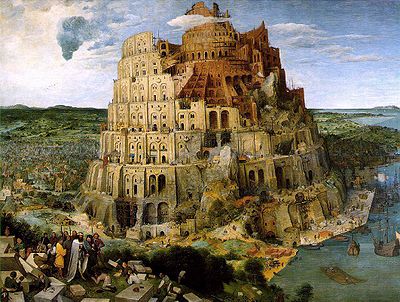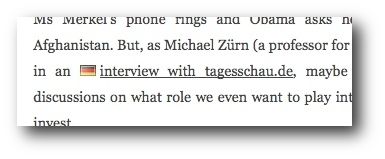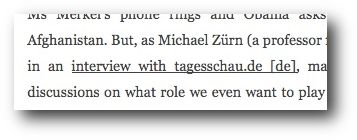Fellow German blogger ix got married in Las Vegas recently (congratulations) and faced the problem to have the marriage accepted by his local civil registry office in Hamburg---because only then they would be able to get all the rights and duties that marriage entails in Germany.

So far, so good: Along with a certified copy of the marriage certificate, he also needed to bring an "Apostille"---a standardized transcription of a legal document (in this case: the marriage certificate) to be accepted by another country (in this case: Germany). Of course, one cannot expect the government officials to be able to read the English language, not even when a marriage certificate consists of a quite simple set of information that does not differ significantly between the two countries. So he had to obtain an official translation of both documents from a certified translator, before they finally accepted his marriage as valid.
That the German government is very strict about "our official language is German" is no news to me: Once before I had to provide US documents to an agency and in spite of the relevant passages being very tiny, they demanded to have the whole document translated. Eventually, I managed to have them accept my (and therefore an uncertified) translation, which probably saved me what would have felt like a million dollars in translator fees.
Though all in all, it seems to be a quite tedious process, I now hope to know quite well what needs to be done to have a US marriage accepted in Germany. My fiancée and I will face the same process soon and this way we know what to expect. I'll make sure to blog about it again when it's time.
(pictured: "The Tower of Babel" by Pieter Brueghel the Elder (1563))


